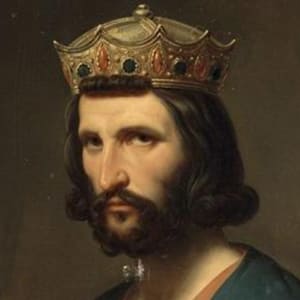
Sol Myron Linowitz
Sol Myron Linowitz was an American diplomat, lawyer and businessman known as a presidential adviser and as a co-founder of Xerox.
Synopsis
Born in December 1913, Sol Myron Linowitz studied law at Cornell University and worked at various Washington governmental posts before becoming chairman of Xerox in 1958, a post he held until 1966. Linowitz co-negotiated the Panama Canal Treaties of 1977 and served as personal ambassador for President Jimmy Carter during the Middle East peace negotiations. He received the Presidential Medal of Freedom in 1998.
Early Years
Sol Linowitz was born December 7, 1913, in Trenton, New Jersey. He was the eldest of four sons of Polish Jewish immigrants—his father was a fruit importer and his mother a homemaker. Young Linowitz excelled in school, graduating first in his class from Trenton Central High School in 1931.
He planned to go to college, but the Great Depression struck and curtailed his father's business greatly, nearly shutting it down. Linowitz was granted scholarship assistance and set up a part-time job, however, and he was able to enroll at Hamilton College, a liberal arts institution in upstate New York, where he graduated in 1935 as salutatorian of his class.
That same year, Linowitz enrolled at Cornell Law School, where he became editor-in-chief of the Cornell Law Quarterly and graduated first in his class in 1938.
The Law and Xerox
After law school, Linowitz took a position with a small family firm in Rochester, New York. When World War II began, Linowitz was sidelined from the military because of a knee injury suffered while he was with the Hamilton soccer team, so he took a job in Washington, D.C., at the Office of Price Administration, where he worked with a young Richard Nixon. After the war, Linowitz went back to Rochester, where he practiced law for the next 20 years.
In Rochester, Linowitz met Joseph C. Wilson, a businessman who ran a multimillion-dollar photographic supplies company, which survived in the heavy shadow of Eastman Kodak. Wilson had recently come across the process of electrophotography, and he asked Linowitz to help him draw up a licensing agreement so his company could begin using it. In 1959, the company created the first copy machine for the commercial market and later became Xerox, with Linowitz as vice president and general counsel (he served as chairman of the board from 1960 to 1966). By the mid-1960s, Xerox was one of the 12 largest companies in the United States in terms of market capitalization.
The Diplomat
In fall 1966, Linowitz left Xerox when President Johnson appointed him U.S. ambassador to the Organization of American States (OAS) and U.S. representative on the Inter-American Committee on the Alliance for Progress. When the Nixon administration came into office, Linowitz returned to private practice and stayed in Washington as a part of the international law firm of Coudert Brothers LLP (1969–1994).
In 1977, Linowitz found himself back in government employ when President Carter assigned him the task of negotiating the Panama Canal Treaties. This was followed soon after by Carter naming him special ambassador to the Middle East, where Linowitz negotiated peace treaties with the Palestinians.
When not practicing law or serving U.S. presidents, Linowitz founded the International Executive Services Corps, which supports companies in developing countries, and wrote several books, among them This Troubled Urban World (1974) and The Making of a Public Man: A Memoir (1980). In 1998 President Clinton awarded Linowitz the Presidential Medal of Freedom.
Sol Linowitz died March 18, 2005, in Washington, D.C.



